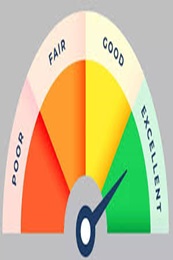Difference Between Income Tax and TDS Explained
April 03, 2025

Understanding taxation is crucial for every individual and business in India. Two of the most common terms that taxpayers come across are Income Tax and Tax Deducted at Source (TDS). While they might seem similar, they serve distinct purposes in tax collection and compliance. This comprehensive guide explains the differences, mechanisms, and significance of both, ensuring you have a clear understanding of how they impact your financial obligations.
What is Income Tax?
Income Tax is a direct tax levied by the government on the income earned by individuals, Hindu Undivided Families (HUFs), firms, and corporations during a financial year. It is governed by the Income Tax Act, 1961 and is calculated based on the taxpayer’s total income.
Types of Income Subject to Income Tax
The Income Tax Act categorizes taxable income into five broad heads:
- Income from Salary – Earnings received by an individual from an employer in the form of salary, wages, bonuses, allowances, and pensions.
- Income from House Property – Rental income from a property owned by the taxpayer.
- Income from Business or Profession – Profits earned by self-employed individuals, businesses, freelancers, and professionals like doctors, lawyers, and consultants.
- Income from Capital Gains – Profit earned from the sale of capital assets such as property, stocks, or mutual funds
- Income from Other Sources – Income not covered under the above categories, such as interest earned on Fixed Deposits (FDs), dividends, lottery winnings, or gifts exceeding the specified exemption limit.
What is Tax Deducted at Source (TDS)?
TDS (Tax Deducted at Source) is a system where tax is deducted at the time of income generation rather than at the end of the financial year. It is implemented by the payer (deductor) before making payments to the payee (deductee), ensuring tax collection in advance and reducing tax evasion.
Where is TDS Applicable?
TDS is deducted on various types of payments, including:
- Salary Payments – Employers deduct TDS on salary as per the employee’s applicable income tax slab.
- Interest on Fixed Deposits and Savings Accounts – Banks deduct TDS if the interest earned exceeds ₹40,000 (₹50,000 for senior citizens) per year. For FY 2025-26, the TDS exemption limit has been hiked to ₹50,000 for general citizens and ₹1 lakh for senior citizens.
- Rent Payments – If rent exceeds ₹50,000 per month, TDS at 5% must be deducted by the tenant.
- Professional and Consultancy Fees – TDS is deducted at 10% if professional fees exceed ₹30,000 annually.
- Commission and Brokerage – Agents, brokers, and intermediaries receive payments after a TDS deduction of 5-10%.
- Winning from Lotteries, Gambling, and Contests – Winnings above ₹10,000 (single transaction) attract a 30% TDS deduction.
- Payments to Contractors – Deducted at 1% for individual contractors and 2% for others.
TDS Rates on Key Transactions
| Nature of Payment | TDS Rate |
| Salary | As per tax slab |
| Fixed Deposit Interest | 10%; 20% if PAN info isn’t there |
| Rent (above ₹50,000) | 5% |
| Professional Fees | 10% |
| Commission & Brokerage | 5% - 10% |
| Lottery, Gambling Winnings | 30% |
Key Differences Between Income Tax and TDS
| Feature | Income Tax | TDS |
| Definition | A direct tax levied on an individual's or company’s total income for a financial year. | Tax deducted at the time of earning specific types of income and deposited with the government. |
| Who Pays? | The taxpayer pays it directly to the government. | The payer deducts it before making the payment. |
| Collection Method | Paid annually or through advance tax installments. | Deducted at the source periodically before payment. |
| Applicability | Based on total income from all sources. | Applicable to specific payments such as salary, rent, professional fees, and interest. |
| Rates | Based on income tax slabs. | Fixed rates as per government guidelines. |
Filing Returns: Income Tax vs. TDS
- Income Tax Returns (ITR): Taxpayers must file their ITR annually before the due date (usually 31st July for individuals and 30th September for companies).
- TDS Returns: Entities deducting TDS must file quarterly TDS returns (Form 24Q, 26Q, 27Q, 27EQ) to ensure proper crediting of TDS to the payees.
Final Thoughts
Understanding the difference between Income Tax and TDS is crucial for effective tax planning. Income Tax is a broader concept applicable to all income, whereas TDS is a mechanism to collect tax at the source, ensuring tax compliance in advance. As a responsible taxpayer, staying informed about these taxes helps avoid penalties, maximize tax savings, and contribute to national development.
Kick-start your financial journey with Ujjivan. Save more with our high-interest Savings Account and Deposit products. Need cash for your business or personal needs? Apply for MSME Loans or Micro Loans with us – we offer competitive rates and quick disbursal. We also offer vehicle loans and home loans tailored for your unique requirements. Experience a smooth banking journey with Ujjivan SFB!
FAQs
1. What happens if TDS is deducted but not reflected in my Form 26AS?
You should contact the deductor and ensure they have filed the correct TDS return with your PAN details.
2. Can I claim a refund for excess TDS deducted?
Yes, if the total TDS deducted exceeds your actual tax liability, you can claim a refund by filing your Income Tax Return (ITR).
3. Is TDS applicable to all types of income?
No, TDS is deducted only on specified payments such as salary, interest, rent, professional fees, and winnings.
4. Can I avoid TDS deduction?
If your income is below the taxable limit, you can submit Form 15G/15H to avoid TDS on interest income.
5. What if my employer does not deduct TDS on my salary?
You are still liable to pay income tax through advance tax or while filing your ITR.
6. Is TDS deducted on cash withdrawals?
Yes, TDS at 2% applies if cash withdrawals exceed ₹1 crore in a financial year.
7. How do I check my TDS details?
You can check your TDS credits in Form 26AS through the income tax portal.
8. What is the due date for TDS deposit?
TDS must be deposited by the 7th of the following month in which it was deducted.
9. Can a freelancer be subject to TDS?
Yes, clients deduct 10% TDS on freelancer payments if they exceed ₹30,000 annually.
10. Is TDS applicable to NRIs?
Yes, TDS is deducted at different rates for payments made to NRIs as per the Income Tax Act.
Latest Blogs

What Happens When You Leave Your Savings Account Unused?
April 01, 2025
Imagine waking up one day to find that your hard-earned money is locked away and inaccessible. Sounds stressful, right? This is precisely what happens when you leave your Savings Account inactive for too long.

Unified Pension Scheme (UPS): Everything You Need to Know
March 29, 2025
The Pension Fund Regulatory and Development Authority (PFRDA) has announced the Unified Pension Scheme (UPS) will be operational from April 1, 2025.

What Does DPD Mean in CIBIL Report?
March 27, 2025
Your CIBIL report is like a financial passport that determines your credibility as a borrower. Whether you’re applying for a home loan, personal loan, or even a credit card, lenders will carefully review your CIBIL report before making a decision.

Are You Eligible for Section 80EE or Section 80EEA Tax Benefits?
March 26, 2025
Imagine this: Ravi, a young IT professional in Bangalore, has just booked his dream home. While planning his finances, he hears about tax benefits under Section 80EE and Section 80EEA but is confused about which one applies to him.

First Salary? 10 Smart & Fun Ways to Make It Count!
March 26, 2025
That magical moment has arrived—you’ve received your first salary! It’s not just money; it’s your hard-earned reward for months (or years) of effort, learning, and persistence.


